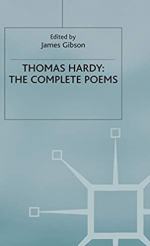|
This section contains 327 words (approx. 1 page at 400 words per page) |

|
The Man He Killed Summary & Study Guide Description
The Man He Killed Summary & Study Guide includes comprehensive information and analysis to help you understand the book. This study guide contains the following sections:
This detailed literature summary also contains Quotes and a Free Quiz on The Man He Killed by Thomas Hardy.
The following version of this poem was used to create this guide: Hardy, Thomas. “The Man He Killed” Poetry Foundation, https://www.poetryfoundation.org/poems/44329/the-man-he-killed.
Note that all parenthetical citations within the guide refer to the lines of the poem from which the quotations are taken.
Thomas Hardy was an English novelist and poet born in 1840. His birthplace in Southwestern England played a major influence throughout his writing career – many of his novels were set in the fictional rural region of Wessex, which Hardy based on Southwestern England. The novels that Hardy is best known for, including Far from the Madding Crowd, Tess of the d’Urbervilles, and Jude the Obscure, are set primarily in Wessex and feature main characters that hail from this region. Hardy’s novels are frequently bleak in tone; his main characters struggle against not only social systems such as Industrialization and codes of Victorian morality, but often the cruel randomness of the universe. In fact, Jude the Obscure was such a stark and pessimistic depiction of the rigidity of the Victorian class structure that the harsh criticism directed towards the work caused Hardy to turn away from novels back to poetry, which he had endeavored to write at the beginning of his literary career.
Now, Hardy is best known, in the public eye, as a novelist, but Hardy actually thought of himself first as a poet. In his verse, Hardy explored many of the same tragic themes that he wrote about in his novels. However, with the increasingly global conflicts occurring in the years surrounding the turn of the century, Hardy’s rural Wessex no longer contended with the encroachment of modernity alone. Rather, Hardy’s poetic speakers also face increasingly global warfare and conflict. Like the speaker of “The Man He Killed,” the characters featured in Hardy’s later poetry are often forced to confront the prospect of and even actively participate in a globalized battlefield.
Read more from the Study Guide
|
This section contains 327 words (approx. 1 page at 400 words per page) |

|



